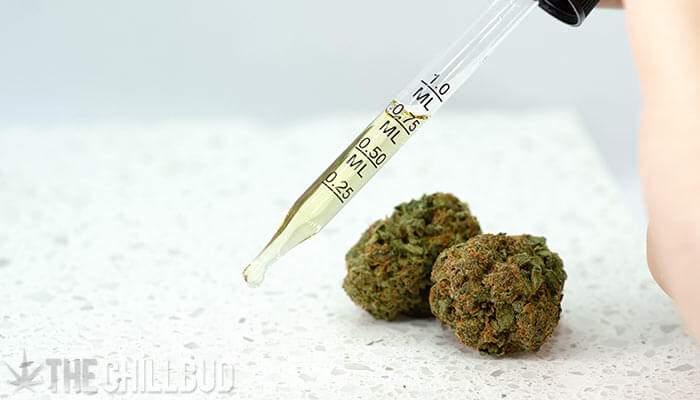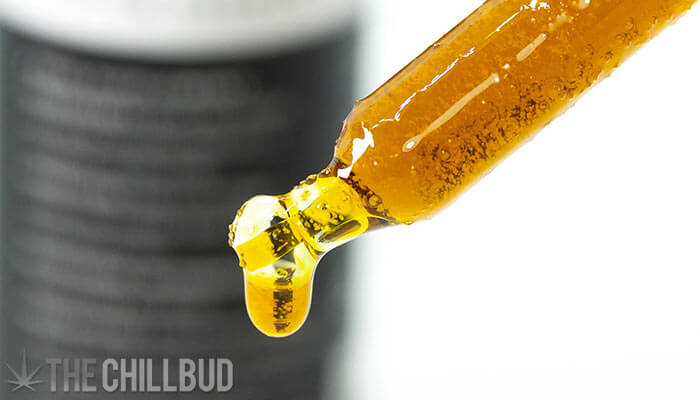What Is CBD?
The cannabis plant contains dozens of cannabinoids, each contain different properties and benefit us in varying ways. THC is a well-known cannabinoid primarily responsible for the intoxicating effects of cannabis. Another cannabinoid gaining popularity and recognition known as CBD (cannabidiol) is quickly becoming one of the hottest terms in health today.

Cannabidiol is relatively new on the health scene so the research is still lagging behind, but the testimony of countless individuals proves CBD is something we need to look closer at. Unlike THC, cannabidiol doesn’t get users high. Coupled with the plethora of health benefits it has to offer, this makes CBD an exciting new treatment that we’ve only begun to appreciate and understand.
CBD oils are available in a variety of forms; tinctures, capsules, edibles, topical creams / salves, oral sprays, vapor pens and even transdermal patches.

CBD Oil vs Hemp Oil
Cannabidiol can be extracted from the cannabis plant as well as the hemp plant. The difference between the cannabis plant and the hemp plant comes down to the amount of THC present. Both are classified as cannabis sativa, but hemp doesn’t become cannabis until THC levels exceed 0.3%.
CBD oil is generally extracted from the hemp plant because of the availability, affordability and ease over using the cannabis plant. This also helps ensure the final product doesn’t contain enough THC to affect the user.
Most of the CBD oil you’ll find on the market derives from the hemp plant, but often times when you see ‘hemp oil’ it’s actually hemp seed oil.
Hemp seed oil contains healthy fats and proteins, but it contains no CBD or THC. It’s important to know whether the hemp oil is sourced from a mature plant or the seeds.
CBD Oil vs Cannabis Oil
Cannabis oil is extracted from plants that contain more than 0.3% THC. CBD oil is extracted from plants that contain less than 0.3% THC.
Cannabis plants are usually bred for their intoxicating effects and contain high levels of THC. While cannabis oil does have its place and offers unique benefits, it’s a far cry from CBD oil. Because cannabis oil contains THC it comes with its own list of potential side effects and it’s unsuitable for children and pets. Also it’s often far more expensive.

Isolates vs Full Spectrum
Isolate extracts are another option, but they don’t offer nearly the same benefit. Just like the name suggests, isolates are extracts that have isolated and targeted a specific cannabinoid. Some people prefer this type of extract because it contains no THC whatsoever.
The problem with CBD isolates is that they exclude dozens of beneficial cannabinoids that work synergistically with cannabidiol. Researchers have studied the effects of isolates vs full spectrum extracts and the whole plant (full spectrum) extract offers far more profound benefits. Experts coined the term ‘entourage effect’ to help explain why this happens. By using the entire spectrum of cannabinoids found in the cannabis plant (or hemp plant) you’re allowing these compounds to work together. While it’s still not fully understood how or why, it’s well known that this entourage effect does influence the potency and safety profile in a major way.
Side Effects of CBD
There are very few adverse side effects associated with CBD use. However some CBD oil users have reported the following potential side effects: anxiety, nausea, dry mouth, dizziness and tiredness.
Cannabidiol also inhibits cytochrome P450 (CYP 450) isoenzymes. [?] These enzymes are used by the body to metabolize prescription drugs and eliminate toxins from the body. By using CBD you may be inhibiting your body’s ability to metabolize certain drugs meaning they’ll stay in your system longer. It’s important to consult with your doctor before using CBD products, especially if you’re using prescription medications.
Benefits of CBD Oil
The health benefits of CBD oil are impossible to ignore. There are only a handful of scientific studies done on CBD, and already they prove that cannabidiol shows extreme promise in the health field.
CBD oil has been shown to help with:
- Chronic Pain / Inflammation
- Epilepsy
- Anxiety
- Depression
- Antioxidant Activity
- Cancer
Chronic Pain
Conservative estimates suggest that at least 11% of the population suffers from chronic pain. Many people either suffer in silence or turn to prescription painkillers to help alleviate the pain. Regular use of prescription painkillers is extremely dangerous, especially when they’re opioid based.
Potential side effects of pharmaceutical painkillers include:
- Addiction
- Liver damage
- Cardiovascular damage
- Constipation
- Cognitive impairment
- Potentially deadly when mixed with alcohol or other medications
Generally opioids are prescribed for intense acute pain (like after surgery), but are often abused or over prescribed. This has led to the opioid epidemic we’re experiencing today. When dealing with chronic pain opioid painkillers are not the route to take as prolonged use significantly increases the chances of becoming addicted and dependent on the drug.
Cannabis use can actually help opioid addicts kick the addiction and help quell withdrawal symptoms. [?]
Using CBD to treat chronic pain is a much safer alternative that is far easier for our body to process. Combine the safety with the fact that CBD acts as a natural anti-inflammatory and you can see why it’s so effective as a natural pain reliever. [?]
Inflammation is at the core of virtually all pain and disease. While it’s an integral part of the healing process, chronic inflammation is detrimental to our health and takes a serious toll on our immune function. Keeping inflammation under control while simultaneously relieving pain makes CBD a great option for many individuals suffering from chronic pain.
CBD helps suppress pain by targeting receptors found in the spinal cord and brain which control how we react to pain. When CBD interacts with these receptors the sensation of pain is reduced, just like how traditional painkillers work. However CBD doesn’t have a laundry list of side effects or risk of addiction.

CBD Oil for Pets
Cannabidiol is safe for human consumption, but is it safe for our pets as well?
Yes, it’s generally safe for pets to take CBD oil.
It’s important to know that while hemp derived CBD oil is safe for pet consumption, cannabis products are not! Do not give your pet any products that contain THC as it can have serious side effects.
Our pets experience many of the same health problems that we do, especially those associated with aging. Unfortunately, arthritis is quite common in dogs. Here are a few signs that your dog is suffering from arthritis pain:
- Slow gait
- Difficulty getting up after laying down for extended periods
- Lethargy
- Muscle atrophy
- Swelling
- Localized pain, vocalized when touched
- Urinating indoors
- Sleeping more than normal
No one likes to see their pet suffer, so naturally we look for remedies that we know work for ourselves. Typically it’s not recommended that you give your pet something from your medicine cabinet, but pure CBD oil is an exception to that rule.
Even many medications meant for pets can cause damage to the liver, kidney or gastrointestinal tract. CBD however has no life threatening side effects when using the proper dosage, plus your pet won’t be high or sedated.
Benefits
Cannabidiol can be used to help treat a variety of ailments in dogs. Some of the most popular uses for CBD oil for dogs include:
- Treating seizures
- Pain
- Arthritis
- Stress
- Anxiety
- Symptoms of cancer
- Nausea
- Gastrointestinal issues
Dangers
Just like any medication or diet change there can be potential side effects when giving your pet CBD oil. There isn’t an FDA approved dosage / toxicity chart as of yet, so it’s important to work closely with a veterinarian to ensure the safety of your pet. That being said, the side effects reported by pet owners are few and far between, and the potential dangers are quite mild.
Potential dangers of giving your pet CBD oil:
- Drowsiness
- Dry mouth
- Slight drop in blood pressure
Once again, it’s important to ensure you’re using a high quality CBD oil with no unnecessary additives, flavors or colors. A good quality oil should contain a carrier oil (olive oil, coconut oil, MCT oil) and a hemp extract / CBD isolate. Organic products are preferred, but at the very least source products that don’t use pesticides or solvents.
Guide to Buying CBD Oil
If you’re looking at buying CBD oil for the first time, here are a few things to consider before choosing a product.
Is the extract derived from a cannabis plant or hemp plant? Is it a CBD isolate or full spectrum? Does it contain “other” ingredients? How many milligrams of CBD are in each dose / bottle? Is it from a trusted company that regularly tests their oil for impurities, toxins and dosage accuracy?
For the best results we suggest choosing a full spectrum hemp plant extract that contains only the carrier oil and the extract itself.









